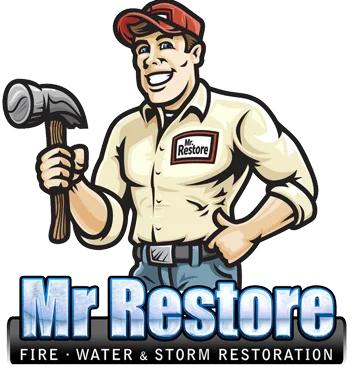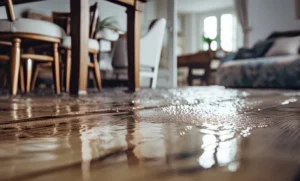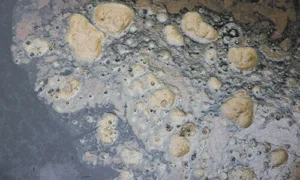Sewage Backup Myths That Could Cost You Thousands
Sewage backups are one of the most unpleasant and costly disasters a homeowner can face. Yet, many people hold misconceptions about how to handle these situations, which can lead to even more damage and higher costs. Knowing how to respond when you’re dealing with a sewage backup is essential to protect your home and avoid hefty repair bills. In this article, we’ll debunk some common myths surrounding sewage backups and explain why investing in professional sewage cleanup services is crucial.
Myth 1: Sewage Smells Will Go Away on Their Own
One of the most pervasive myths is that sewage odors will dissipate over time. Many homeowners believe that opening a few windows and using air fresheners will solve the issue. The reality is that sewage odors indicate the presence of harmful bacteria and gases, such as methane and hydrogen sulphide, which can be hazardous to your health.
- The Truth: If your home smells like sewage, it’s a sign that there’s lingering contamination. Only a professional sewage cleanup company can effectively remove contaminants and neutralize odors using industrial-grade equipment.
Myth 2: You Can Clean Up Sewage Spills Yourself
While it might be tempting to save money by cleaning up a sewage spill yourself, doing so can expose you to serious health risks. Sewage water, also known as black water, is filled with harmful pathogens, bacteria, and viruses that can cause diseases. Without the proper protective gear and disinfectants, DIY cleanup can lead to illness.
- The Truth: Handling sewage cleanup on your own can make matters worse by spreading contaminants to other areas of your home. Professional services use specialized equipment to safely and effectively clean and disinfect affected areas.
Myth 3: Bleach Can Kill All Sewage Contaminants
Bleach is often seen as a cure-all for cleaning, but it’s not as effective as many people think when it comes to sewage contamination. While bleach can kill some bacteria, it’s not strong enough to eliminate all pathogens found in sewage.
- The Truth: Sewage contains various microorganisms, including viruses, bacteria, and parasites that are resistant to bleach. Restoration experts use EPA-approved disinfectants that are specifically designed to handle the pathogens found in sewage.
Myth 4: Sewage Backups Only Happen in Older Homes
A common misconception is that sewage backups only occur in older homes with outdated plumbing systems. While it’s true that older homes may be more prone to issues, new homes are not immune to sewage backups.
- The Truth: Sewage backups can occur in any home, regardless of its age. Factors like tree root intrusion, heavy rainfall, or a clogged main sewer line can cause backups in newer homes as well. Regular maintenance and inspections can help prevent unexpected problems.
Myth 5: Homeowners’ Insurance Will Always Cover Sewage Damage
Many homeowners assume that their insurance policy will cover any damage caused by a sewage backup. However, standard homeowners’ insurance often excludes sewage damage unless you have a specific rider or endorsement for sewage backup coverage.
- The Truth: It’s essential to review your insurance policy to understand what is and isn’t covered. Adding sewage backup coverage to your policy can save you thousands of dollars in out-of-pocket expenses if a backup occurs.
Why You Should Invest in Professional Sewage Cleanup Services
If you’ve experienced a sewage backup, hiring professional sewage cleanup services is crucial for several reasons:
- Health and Safety
Sewage water is filled with pathogens that can cause severe health issues, especially if you’re exposed to it for extended periods. Professional cleanup services have the equipment and protective gear necessary to handle these contaminants safely. - Preventing Further Damage
Sewage can seep into floors, walls, and insulation, causing long-term damage if not cleaned properly. Restoration professionals know how to detect hidden moisture and contamination, preventing costly repairs down the line. - Odor Removal
The smell of sewage is not just unpleasant—it’s also a sign of lingering bacteria and gases. Professional cleanup companies use air scrubbers and industrial-grade deodorizers to remove odors effectively.
Common Causes of Sewage Backups
Understanding the causes of sewage backups can help you take preventive measures. Here are some of the most common reasons why sewage backups occur:
- Tree Root Intrusion: Roots can grow into your sewer line, causing blockages that lead to backups.
- Clogged Pipes: Flushing non-biodegradable items like wipes, diapers, or feminine hygiene products can cause clogs that lead to sewage backups.
- Heavy Rainfall: Excessive rain can overwhelm municipal sewer systems, causing water to back up into homes.
- Aging Sewer Lines: Old, corroded pipes are more likely to collapse or break, leading to sewage backups.
Tips for Preventing Sewage Backups
Prevention is always better than cleanup. Here are some tips to help you avoid a costly sewage backup:
- Install a Backwater Valve: A backwater valve can prevent sewage from flowing back into your home during heavy rainfall or a clogged sewer line.
- Schedule Regular Inspections: Having a plumber inspect your sewer lines annually can help identify potential problems before they become major issues.
- Be Mindful of What You Flush: Avoid flushing anything other than toilet paper to prevent clogs in your sewer line.
- Divert Rainwater Away: Ensure that your downspouts are directing rainwater away from your home’s foundation to prevent sewer line overload.
FAQs About Sewage Cleanup
Can all sewage backups be cleaned up by homeowners?
No, due to the health risks associated with sewage, it’s recommended to hire a professional sewage cleanup company to handle the job.
How long does professional sewage cleanup take?
The timeline varies depending on the extent of the damage. In most cases, it can take a few days to clean and disinfect the affected areas thoroughly.
Is bleach enough to sanitize areas affected by sewage?
No, bleach alone is not sufficient to kill all the pathogens found in sewage. Professional services use specialized disinfectants that are more effective.






